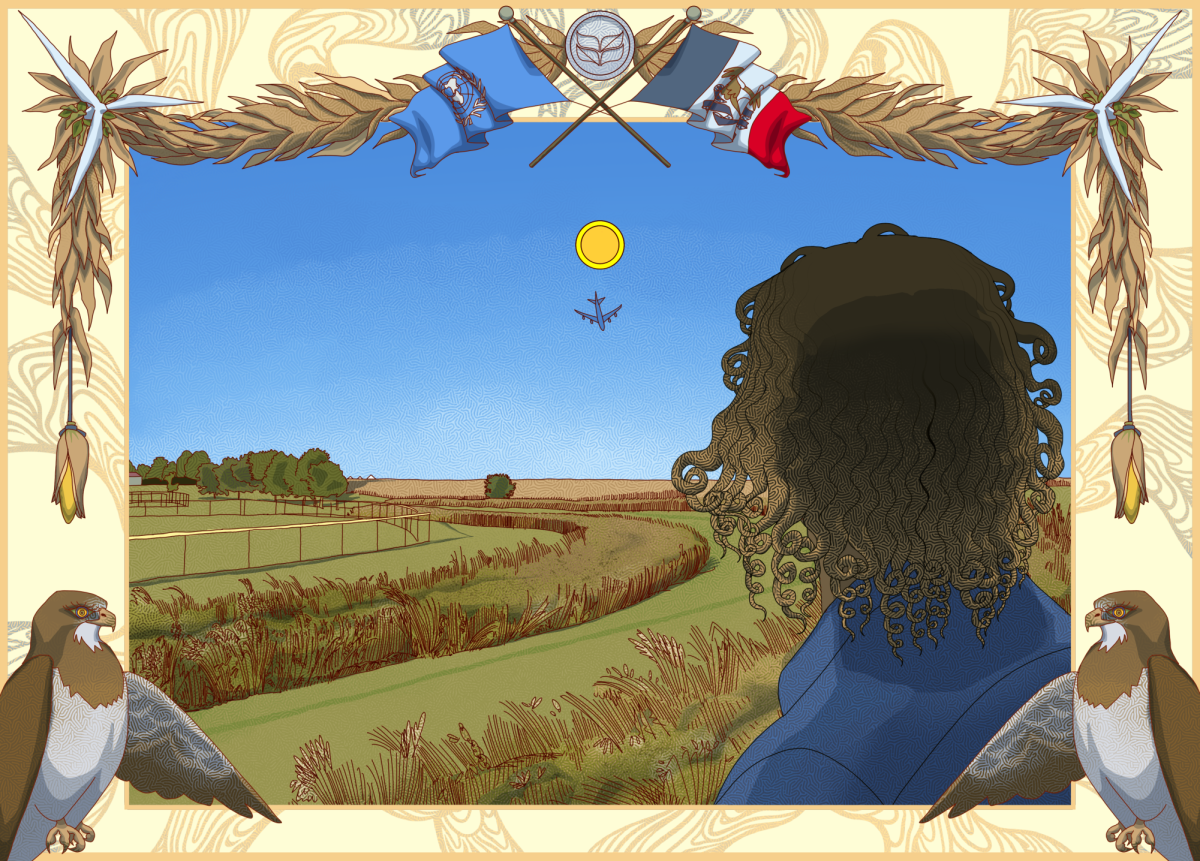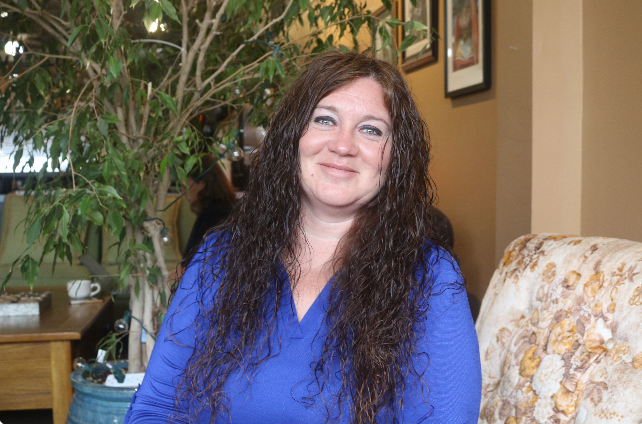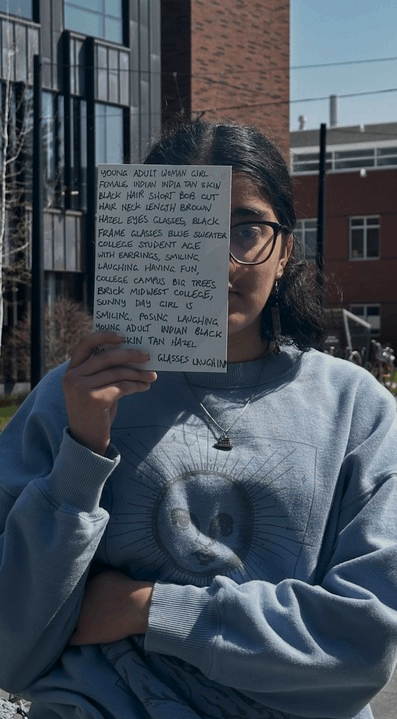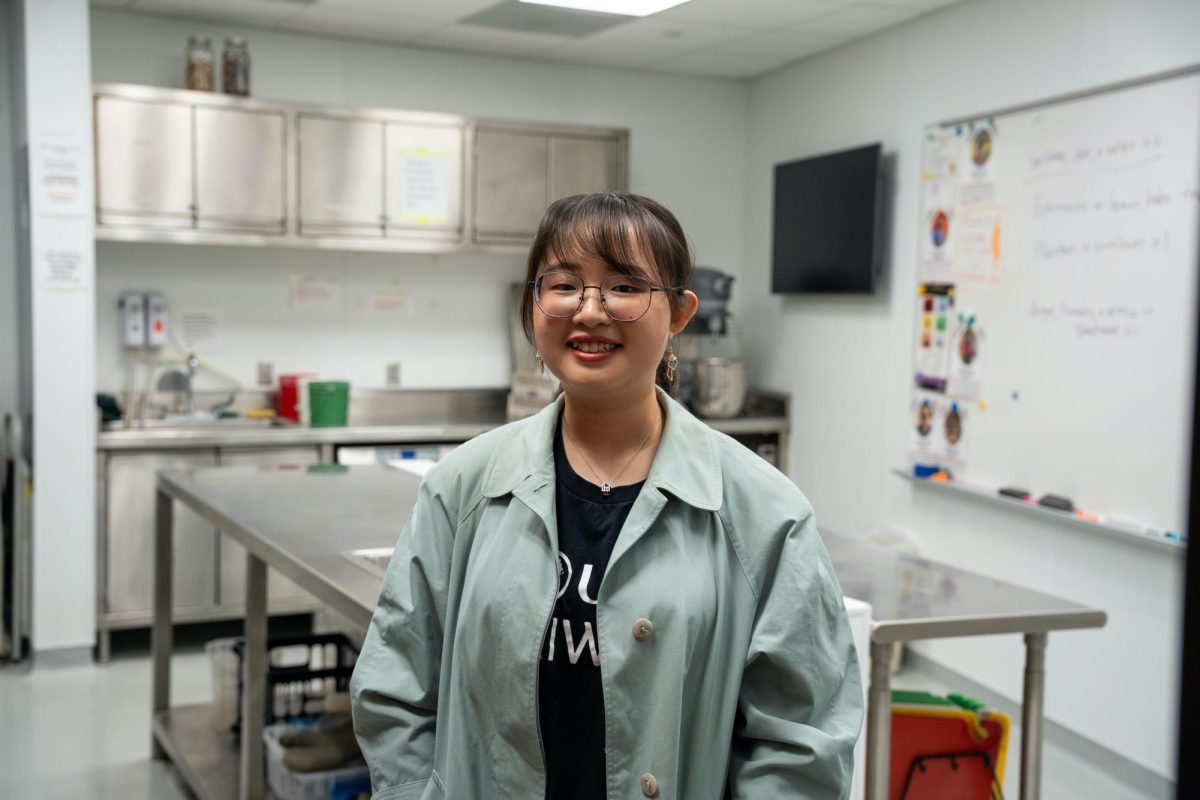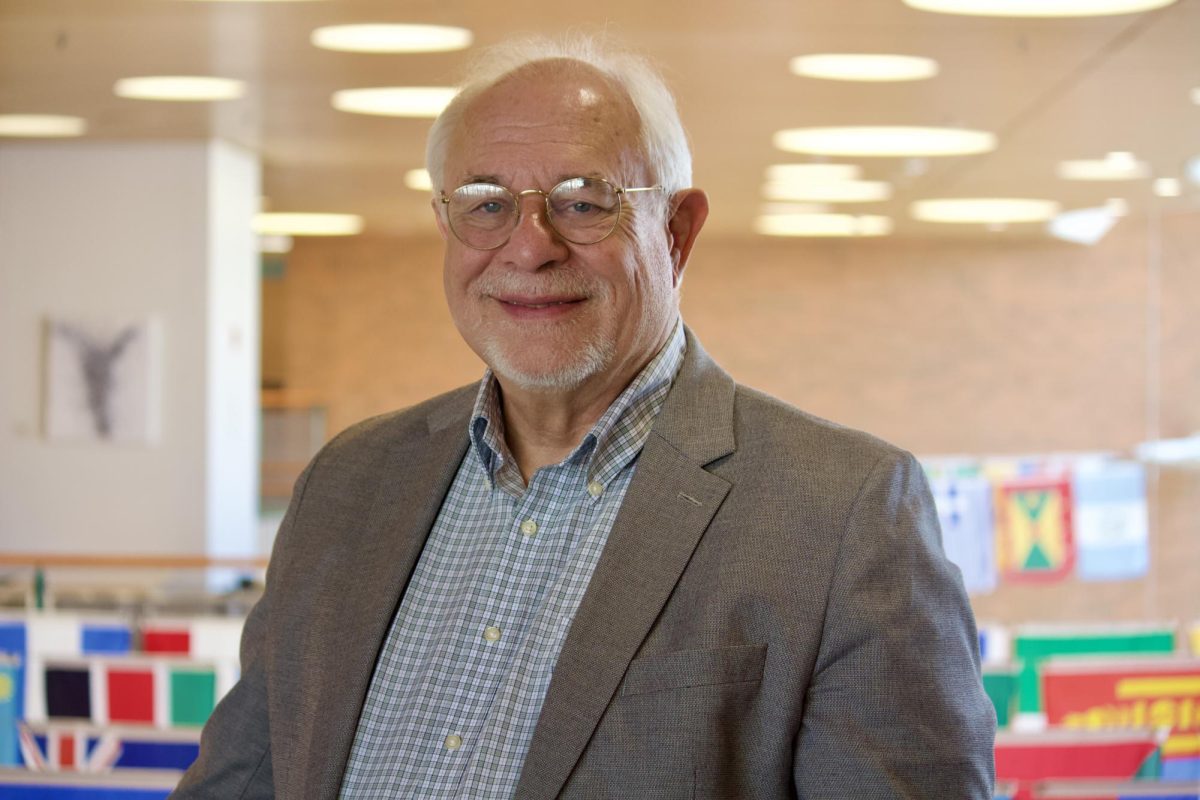We’re at a dire moment: for the first time, global temperatures passed 1.5°C of warming above pre-industrial levels in 2024. With Trump’s inauguration, White House policy once again holds that climate change does not exist. We’re unlikely to see any progressive climate action at the federal level for the next four years — instead, we’re seeing a horrifying regression. This absence of federal climate leadership leaves a gap that educational institutions like Grinnell should step in to fill.
Grinnell excels at preparing students for life in an uncertain world. Now, it must prepare them for life in an uncertain world and an uncertain climate. Grinnell should formalize a program of study for students to explore how climate change will reshape every aspect of their lives. That’s why I urge that the college launch a Climate major.
I’m not just talking about climate science, though science is imperative to our understanding of the drivers of climate change. Scientists have known that emitting carbon into the atmosphere will cause the planet to warm since the 19th century. We know what we must do: stop emitting carbon dioxide and other warming gases into the atmosphere. We just don’t yet have the political will and the systems set up to make the transition smoothly. Though we have a long road ahead, to paraphrase Joan Baez, the antidote to despair is action.
Climate science alone clearly doesn’t lead to action — we will need policymakers working on climate policy at all levels, from small institutions to the United Nations. Economists will have to study how climate change will shock the global financial system and writers will have to communicate it. Biologists will study the biodiversity crisis perpetuated by human activity and climate change and engineers will figure out how to build bridges and roads for a rapidly warming world. Computer scientists will build more sustainable computing systems and tooling for carbon accounting and journalists will chronicle the grim effects of climate change and explore climate solutions. Teachers will teach students how to live on a changing planet, and doctors will respond to the dire health impacts of climate change. Every job can be a climate job, and we have a dire green skills gap. With a crisis that affects everyone, everyone has a role to play.
A climate major would combine a foundation in climate science with an interdisciplinary investigation into how the changing climate is affecting our planet. This would be a Grinnell education at its finest: an intersectional, applied curriculum bringing together students with deep interests in different facets of the climate crisis. This is the beauty of the liberal arts: the world doesn’t just need people with deep technical skills, and it sure could benefit from more people studying the effects of the climate crisis more holistically.
I’m using “Climate Major” as a catchall for studies into the biggest societal disruption of our time. Students could explore environmental impacts of their artificial intelligence applications or how climate-driven migration is changing the political economy of Europe. They could study artistic traditions communicating the climate crisis and how sporting events and athletic performance are changing in response to warmer temperatures. They could explore how climate change has appeared in literature and media and how remote sensing and data science can help us understand how wildfire spreads. Students wouldn’t have to look far: the changing climate in Iowa — once thought of as relatively safe from the tumults of the climate crisis — would prove a fascinating course of study, with recent climate-driven weather events including a derecho, baseball-sized hail, tornadoes, and dangerous heat waves that led to students sleeping on cots in the Joe Rosenfield Center. Grinnell draws students from all over the world — students who also bring with them stories of local impacts of climate change: glaciers receding, oceans swallowing up land, and the extinctions of flora and fauna.
A climate major would put Grinnell on the map for prospective students seeking a course of study that would allow them to explore the impacts of climate change through the lenses of our many traditional disciplines. There is a rich tradition of student interest in climate at Grinnell: there’s the Student Environmental Committee, a chapter of the Sunrise Movement, the Green Fund, and climate-related tutorials and Mentored Advanced Projects. As far as I can tell, no other small liberal arts institution has inaugurated this kind of course of study, though other schools are launching climate studies with great success. During meetings and discussions with students while I was on campus in early April, I heard serious interest among students for more climate education.
I’m currently researching human health impacts of environmental and climate exposures at the Harvard T.H. Chan School of Public Health, tracking the impacts of the administration’s actions with The Impact Project, and preserving critical federal environmental data with the Public Environmental Data Partners. Dozens of other Grinnell alumni are also working in roles related to the climate. Last year I started a group, Grinnellians in Climate Careers, to bring together alumni working in climate careers and to serve as a resource to current students. We in the group (80 by today’s count!) are excited to share our expertise and mentor students interested in pursuing careers in climate and could help inform climate curricula.
The timing is perfect: last year, Craig Murphy ’74 and JoAnne Yates made a $500,000 gift to help develop climate change coursework and activities at Grinnell. This year, supported by that gift, Professors Wayne Moyer, Elizabeth Queathem, Evan Couzo, and Peter Jacobson are holding a summer workshop on Climate Change and the Grinnell College Curriculum, targeting faculty from all divisions. It’s exciting to see this important topic covered, and I look forward to hearing about the impacts of the workshop.
I urge the College to stand up a multidisciplinary climate major. As an aside for the Office of Development and Alumni Relations, I also imagine that seeing groundbreaking climate curriculum emerge at Grinnell would drive more school pride and gift-giving amongst alumni. We’re going to be dealing with the climate crisis for the rest of our lives. I’d love to have some more Grinnellians join the fight.



